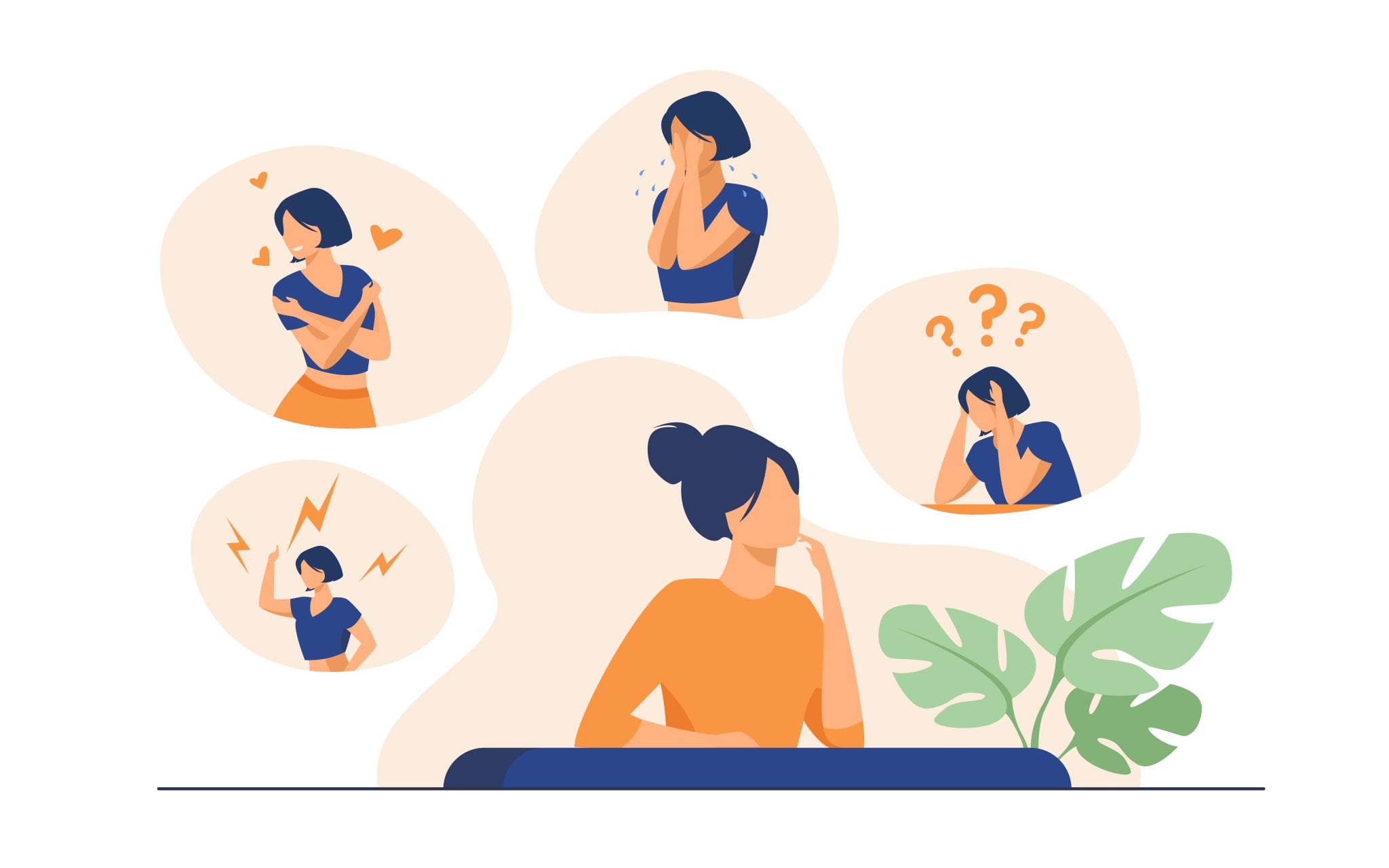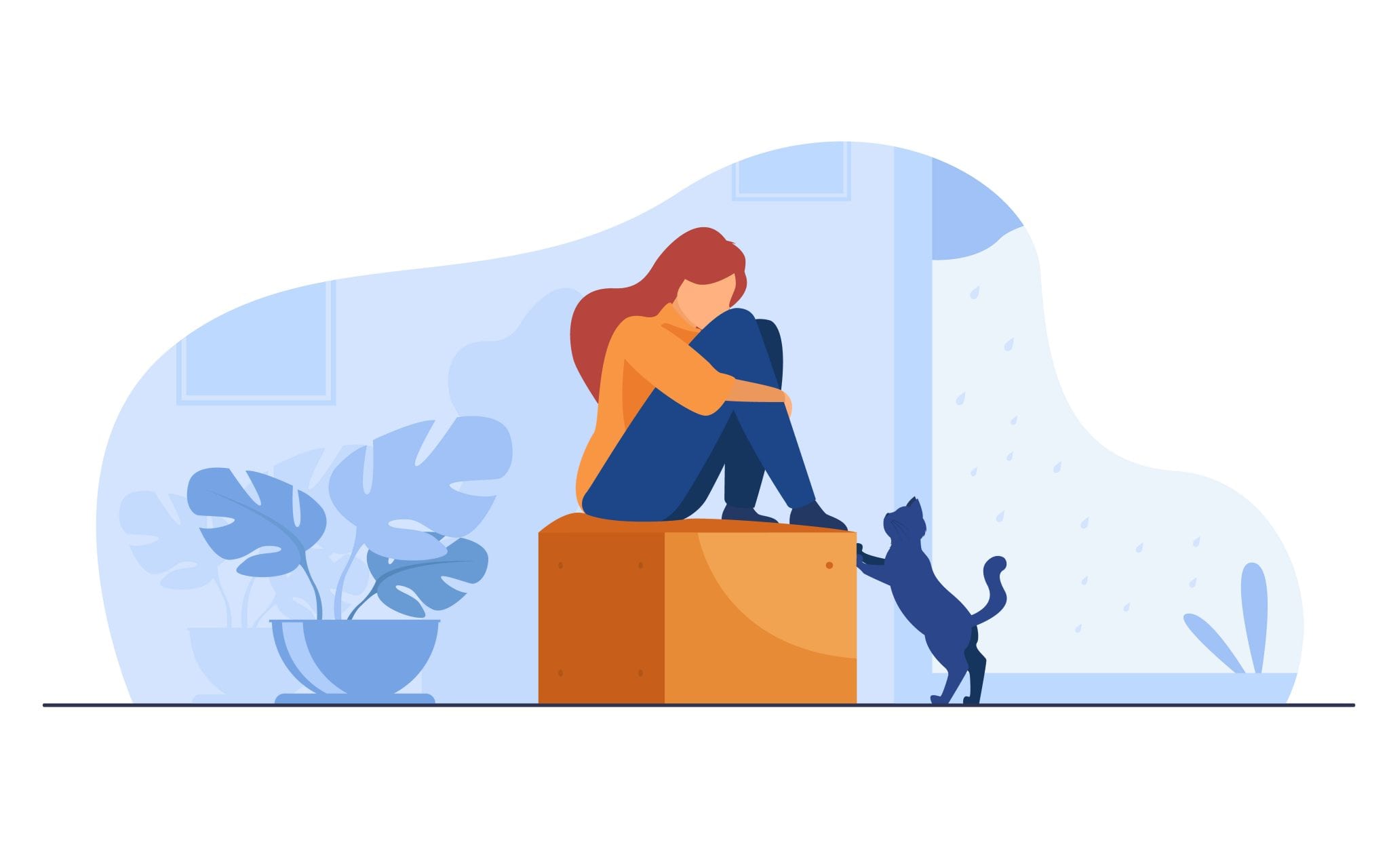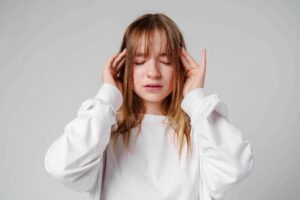Ways to Reduce Anxiety in 2024
This article has been researched and written by Nayla Daou. AI has not been used in producing this article.
As we say farewell to 2022 and usher in the New Year, we look towards the future. With New Year’s resolutions on the docket, many of us are striving to achieve a calm life of meaning and fulfillment. At Clearminds, we understand the disastrous effects of chronic anxiety. As we embark on 2024, let’s look at how we can holistically work towards wellness and live a life with less anxiety and worry.
Media Distancing
All anxiety stems from uncertainty, and watching a 24-hour news cycle is enough to make anyone feel anxious. Civil unrest, political tensions, natural disasters, and COVID-19, you’d be hard-pressed to turn on the television or browse your favorite news apps without seeing something that’s unsettling, troublesome, or scary. Whether you get your news from social media, online, or through traditional news outlets, it’s essential to take a step back and distance yourself from the news. There’s no need to worry about missing out on anything. If it’s important enough, you will find out in due time.
Focus on Productivity and New Ways to Enjoy Life
Although we can not control every aspect of our lives, we can choose to focus on what’s within our power to control. When you start to worry about the unknown or situations beyond your control, consider shifting your focus to your work or hobbies. If work is your source of stress and worry, consider trying something new. Organize a messy room, take up a new hobby, check out a new hiking trail, learn a new skill. Creating opportunities for accomplishments will help you place your attention on something that is positive and satisfying.
 Be Kind to Yourself and Others
Be Kind to Yourself and Others
It’s normal to feel anxious or worried, so cut yourself some slack. Don’t be so hard on yourself or others. Remember that as we continue to navigate the global pandemic, we are all feeling the pressures and worry associated with the “new normal.” If you have a bad moment or a bad day, take a moment to learn from it and move forward. At the same time, if family, friends, or colleagues seem a little more on edge than usual, keep in mind, we are all facing our own pressures and stressors.
Organize and Clean Home
When it comes to reducing anxiety in 2024, it’s essential to consider all aspects of your daily life, including your living environment. An organized and clean home can play a significant role in promoting mental well-being. Studies have shown that a clutter-free space can have surprising mental benefits, from reducing stress to enhancing overall happiness. If you’re interested in learning more about how a clean and tidy home can positively impact your mental health, you may want to explore this informative article on the topic. Beyond tidiness, the colors surrounding you also influence mood and stress levels. Soft, muted hues like pale blues, greens, and warm neutrals have been shown to promote relaxation and create a sense of tranquility at home. Many homeowners turn to professional painting services to refresh their interiors with soothing color palettes that foster a calm, stress-free atmosphere. Whether it’s repainting a bedroom for better sleep or brightening a workspace for improved focus, thoughtful color choices can enhance both mental clarity and emotional balance.
Get Moving
Any form of exercise can serve as a stress reliever. Even if you’re out of shape or you’re not an athlete, exercise is an excellent stress reliever. Physical activity pumps up our feel-good endorphins and other natural neural chemicals that enhance our mental health and sense of well-being. When feeling stressed, a workout can be just what you need. Exercise triggers the release of endorphins that can lift your mood and alleviate tension, making a workout for stress management an effective strategy. Physical movement helps to refocus our mind on our body’s movements, which improves our mood and can help shift our mind from the day’s troubles. Whether it’s walking, gardening, running, jogging, hiking, swimming, biking, or weightlifting, anything that gets you active can help to reduce your stress levels.
Laugh More
As the old saying goes, “laughter is the best medicine.” While it can’t cure all ailments or troubles, laughter can help you feel better. When you laugh, it not only lightens your mental burden but also creates positive physical changes in your body. When we feel stress, our body responds to our stress by producing the hormone called cortisol. Laughter can decrease cortisol levels by increasing your oxygen levels and stimulating circulation throughout the body. Whether you read a few jokes, watch a comedy show or get together with a funny friend, laughter will do wonders for your anxiety and overall mental wellbeing.
Just Breathe
When we become anxious, we tend to take rapid, shallow breaths directly from our chest. This rapid breathing causes dizziness, muscle tension, and an increased heart rate. When your blood is not being properly oxygenated, this may signal a stress response that contributes to anxiety and panic attacks. When you start to feel worried or feel frightened of the unknown, take a moment to regulate your breathing.
The next time you’re feeling anxious, try this simple relaxation technique:
- Inhale slowly and deeply through your nose. Relax your shoulder, allowing your abdomen to expand (your chest should rise very little).
- Exhale slowly through your mouth. As you blow air out, slightly purse your lips, but be sure to relax your jaw.
- Repeat this exercise until you are calm and composed. You can repeat this exercise for several minutes until you start to feel better.
In addition to breathing, you should consider other relaxation techniques, such as yoga or mindfulness.
Seek Professional Help

If you’re feeling overwhelmed by anxiety, know that you’re not alone, and effective anxiety treatment is available. Anxiety is the body’s emotional and physical response to a perceived or real threat. While stress is a normal part of life, anxiety disorders involve persistent, excessive worry that can interfere with daily living. Left untreated, this can take a toll on your mental and physical health, relationships, and overall well-being. Fortunately, psychotherapy is a proven form of anxiety treatment that can help you manage symptoms and regain control of your life.
At Clearminds Center for Emotional Health, we create custom-tailored treatment plans to help our clients identify, manage, and mitigate their anxiety. Contact a member of our team to schedule your appointment today.
Famous People with Dyslexia
Representation matters especially when there is a stigma around dyslexia and learning disabilities in general …
Third Culture Kids: Growing Strong Roots in a Mobile World
In a city like Dubai, it is not unusual to meet a child who has already lived in three countries, attended four different …
What Can I Do If Someone Is Bullying Me at School?
If someone keeps being mean to you, teasing you, hurting you, or leaving you out on purpose, this is called bullying…
Micro-Recovery: TraumaInformed Coping Tools Adults Can Use in Daily Life
Our nervous system is under constant pressure and stimulation. When you add the layer of …
Did You Know – Joyful Memories Can Be a Source of Pain?
I can’t count the number of clients who tell me: “Why does my brain only bring back negative thoughts?” – let’s explore
What Really Happens Behind the Door of Couples Therapy?
Couples don’t usually come to therapy because they stopped caring about each other – they …








